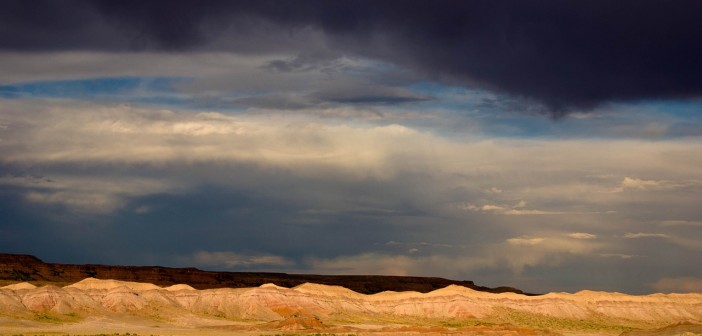For a number of years our leaders have been using “exile“ as a metaphor for the situation of the church. Their assumption is that we have been removed from our place of prominence in the culture and find ourselves without power and status, much like an exile. Even if that language is not used, the numerous charts showing the decline of the church indicate that there was a time when the church was stronger and more powerful, “glory years“ of the institution. And implied in all of this is that our goal is to get back there. We need to find ways to be more vital to attract folks back into our churches; then we will no longer be in exile.
What if, however, our “exile“ was exactly when we were at our statistical heights? What if those numbers indicate a church in exile — a church that worked hard to accommodate the culture in order to be relevant, a church that worked to prove its value to the culture so as to retain its power and prestige? When in exile, the exiles worked hard to fit in, to blend in, to seem non-offensive so as not to be attacked as different or peculiar. Maybe those were the days of exile.
The wilderness experience is an imperative for people who have been in either exodus or exile. The wilderness is where the people of faith are formed.
So why would we want to go back there? To push the biblical metaphor further, we have to remember that before exile there was also an exodus. Both exodus and exile involved a kind of wilderness period after liberation, and both were tempting places to which some of the people wanted to return. Both were periods of slavery, but slavery that carried with it a kind of certainty — a sense of security and routine. In Egypt, there was meat. In Babylon, they could raise families and prosper. Leaving behind both Egypt and Babylon was an uncertain thing, but it was also a very necessary thing if they were going to be God’s people — a light to the nations and a city on a hill. The wilderness experience is an imperative for people who have been in either exodus or exile. The wilderness is where the people of faith are formed. Of course, the wilderness is scary. We prefer the comforts of Egypt and the delights of Babylon, and we do our best to get back there.
I live in Colorado Springs, which sometimes seems to be the epicenter of the discussion of how the church ought to relate to the culture. Many folks here remember when the church was secure and things were certain. Indeed, we have lots of opinions on how to get back to Egypt! Some have never left, actually, just like many of those exiles never returned from Babylon. But why would we want to go back into exile or back to making ecclesiastical bricks again?
Three things happen in the wilderness: First of all, you get out of Egypt, and more importantly you get Egypt out of you. You shake off the culture of Babylon and remember who you are. That’s the second thing that happens out there — you learn your story. The Ten Commandments are given. The people try out the practices of the faith. The narrative that governs your life together is agreed to and lived out. Your stories are rehearsed. And third, you get a vision for where you are going, so that you can re-enter the Promised Land and start building something new. What if that is the season we find ourselves in as a church? What if we are ridding ourselves of the vestiges of an accommodated church? What if we are in a season of re-learning our story and committing ourselves to the practices of the faith? What if God is giving us a vision for where we will be when we move from the wilderness? We need to learn who we are, to know our meta-narrative, and that requires a time of introspection.
But this image can be scary. Like the folks in the wilderness, we do not trust God with our tomorrows. We hoard our manna. We fear not having enough, and this fear and anxiety drives all of our decision-making. But it could be a time of freedom and even joy! We could be released from the pressure of trying to get back to the “good old days“ of exodus and exile. We can find the power of our symbols, stories, and practices once again. We can focus on loving the world without an agenda to make them one of us.
Related Resources:
- Focus: The Real Challenges that Faces the United Methodist Church by Lovett H. Weems, Jr.
- Bearing Fruit: Ministry With Real Results by Lovett H. Weems, Jr., and Tom Berlin







